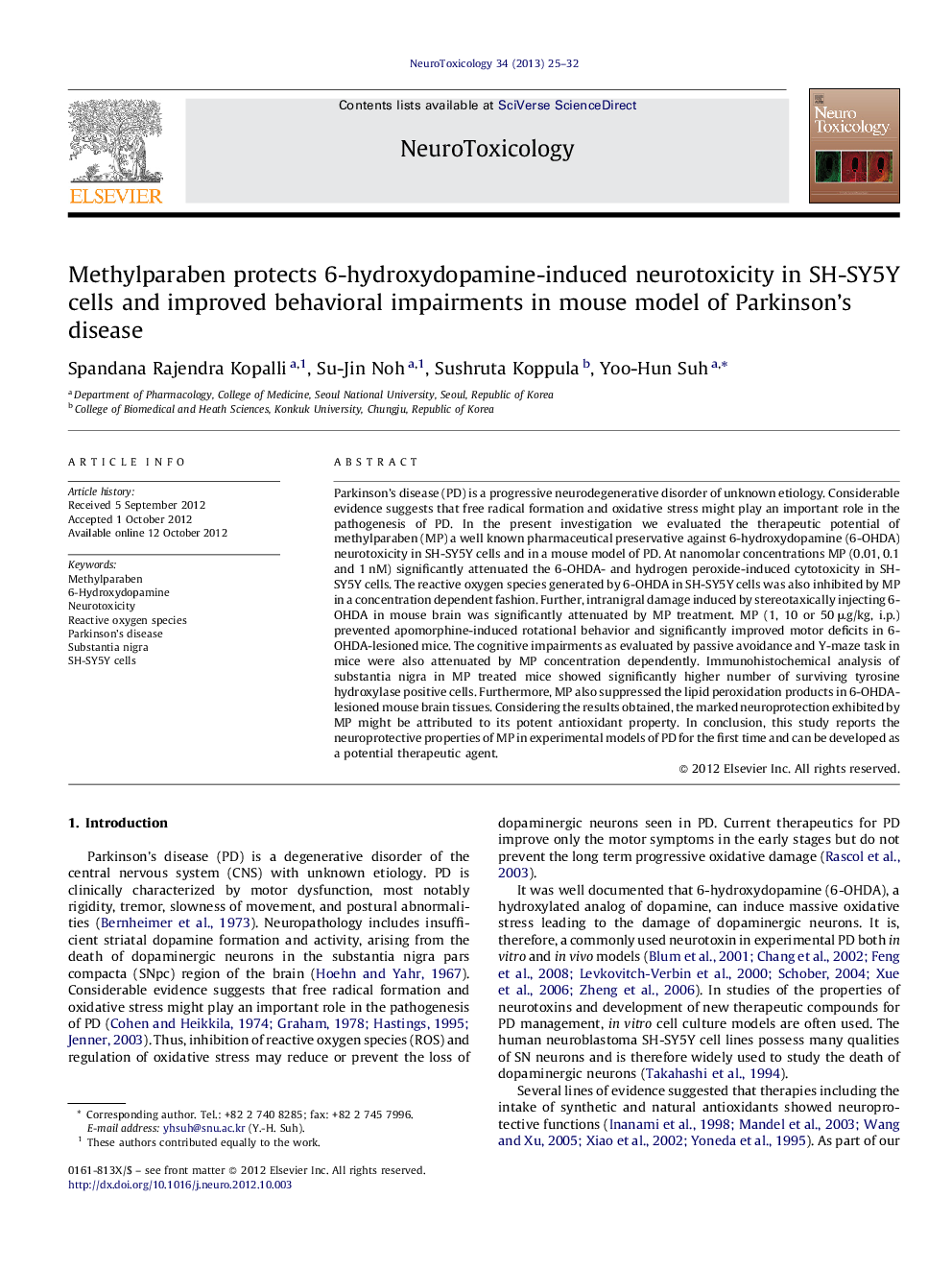| Article ID | Journal | Published Year | Pages | File Type |
|---|---|---|---|---|
| 5855126 | NeuroToxicology | 2013 | 8 Pages |
Parkinson's disease (PD) is a progressive neurodegenerative disorder of unknown etiology. Considerable evidence suggests that free radical formation and oxidative stress might play an important role in the pathogenesis of PD. In the present investigation we evaluated the therapeutic potential of methylparaben (MP) a well known pharmaceutical preservative against 6-hydroxydopamine (6-OHDA) neurotoxicity in SH-SY5Y cells and in a mouse model of PD. At nanomolar concentrations MP (0.01, 0.1 and 1 nM) significantly attenuated the 6-OHDA- and hydrogen peroxide-induced cytotoxicity in SH-SY5Y cells. The reactive oxygen species generated by 6-OHDA in SH-SY5Y cells was also inhibited by MP in a concentration dependent fashion. Further, intranigral damage induced by stereotaxically injecting 6-OHDA in mouse brain was significantly attenuated by MP treatment. MP (1, 10 or 50 μg/kg, i.p.) prevented apomorphine-induced rotational behavior and significantly improved motor deficits in 6-OHDA-lesioned mice. The cognitive impairments as evaluated by passive avoidance and Y-maze task in mice were also attenuated by MP concentration dependently. Immunohistochemical analysis of substantia nigra in MP treated mice showed significantly higher number of surviving tyrosine hydroxylase positive cells. Furthermore, MP also suppressed the lipid peroxidation products in 6-OHDA-lesioned mouse brain tissues. Considering the results obtained, the marked neuroprotection exhibited by MP might be attributed to its potent antioxidant property. In conclusion, this study reports the neuroprotective properties of MP in experimental models of PD for the first time and can be developed as a potential therapeutic agent.
Graphical abstractDownload high-res image (173KB)Download full-size imageHighlights⺠Methylparaben (MP) attenuated 6-OHDA- and H2O2-induced cytotoxicity in SH-SY5Y cells. ⺠MP reduced the ROS generation induced by 6-OHDA. ⺠MP inhibited the lipid peroxidation in 6-OHDA-lesioned brain samples. ⺠MP improved cognitive and motor impairments in 6-OHDA-lesioned mice. ⺠MP reduced cell damage in SN caused by 6-OHDA.
